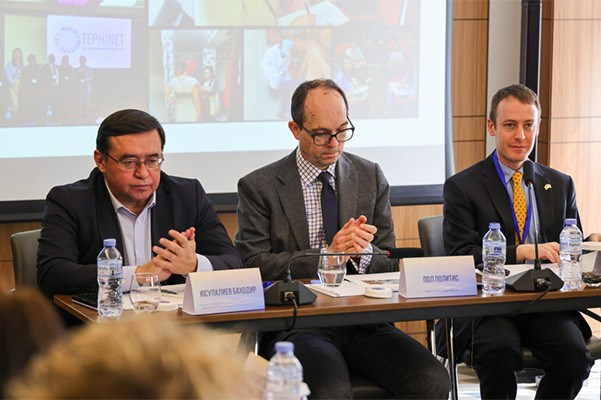U.S. CDC and Uzbekistan Committee Launch Central Asia FETP Intermediate Course

Tashkent, The Gulf Observer: The U.S. Centers for Disease Control and Prevention (CDC), in partnership with the Uzbekistan Committee for Sanitary and Epidemiologic Welfare and Public Health, proudly initiated the Central Asia Field Epidemiology Training Program (FETP) Intermediate course, underscoring a momentous stride in fortifying the public health workforce across Central Asia.
The FETP Intermediate, a comprehensive 9-month program, has been meticulously crafted to impart specialized skills and knowledge to public health professionals. Geared towards effectively responding to emerging threats and enhancing population health outcomes, this program signifies a pivotal juncture in elevating public health standards in the region. The launch event convened esteemed dignitaries, including representatives from the Ministry of Health of five Central Asian countries – Kazakhstan, Kyrgyz Republic, Tajikistan, Turkmenistan, and Uzbekistan.
The event shed light on the course’s objectives, curriculum, and its potential impact on public health in the Central Asia region. Dr. Bakhodir Yusupaliev, Chairman of the Uzbekistan Committee for Sanitary and Epidemiologic Welfare and Public Health, emphasized the significance of investing in the nation’s public health workforce. Dr. Yusupaliev remarked, “The health of our nation rests on the shoulders of our public health workforce. The FETP Intermediate Course is an investment in our future, and the future of public health in Uzbekistan. By training skilled and dedicated leaders…we are well-prepared to protect the health and well-being of our citizens for generations to come.”
The collaboration between the U.S. and the participating Central Asian countries illustrates a shared commitment to enhancing public health capacity. By fostering knowledge exchange and collaborative learning, the program not only empowers Uzbekistan’s public health workforce but also contributes to a more resilient and coordinated regional response to public health threats.
Paul Poletes, Deputy Chief of Mission at the U.S. Embassy, emphasized the broader impact of this collaborative initiative in his opening remarks, stating, “This collaborative learning environment will not only strengthen individual expertise but also foster regional partnerships, ultimately leading to a more united front against public health threats.”
The launch of the FETP Intermediate course symbolizes a significant stride towards advancing public health resilience and preparedness in Central Asia, reaffirming the commitment of nations to collective health security.


